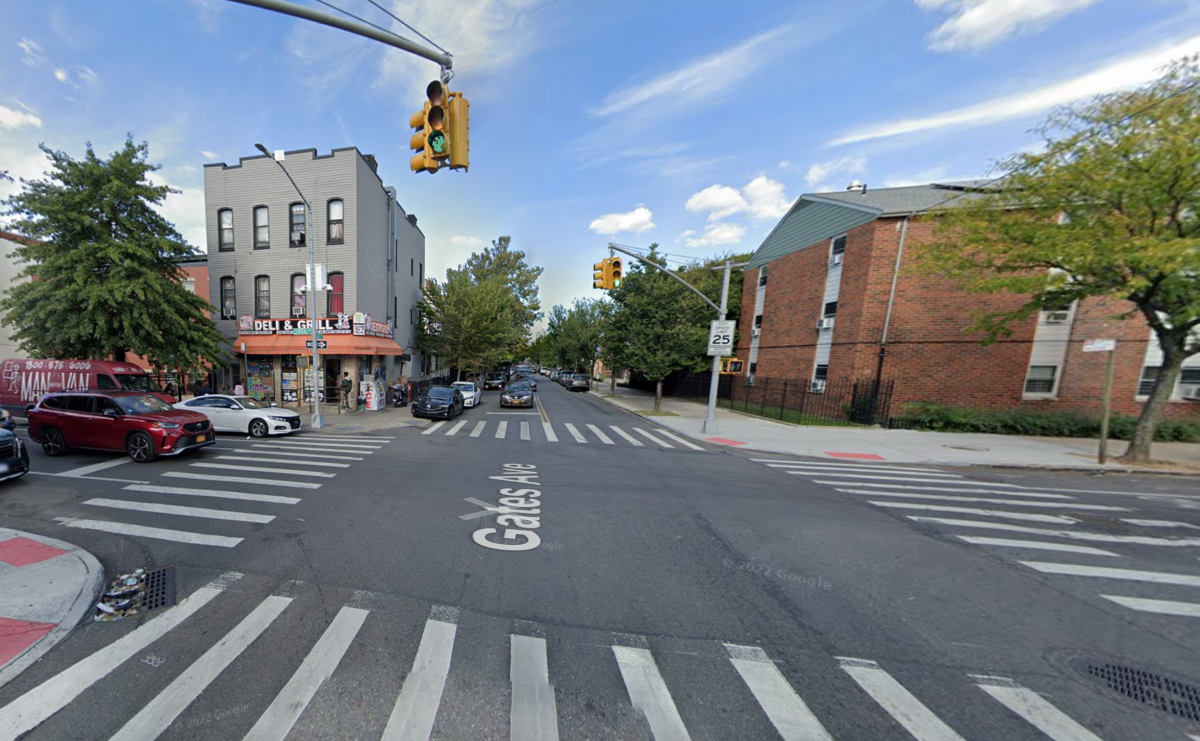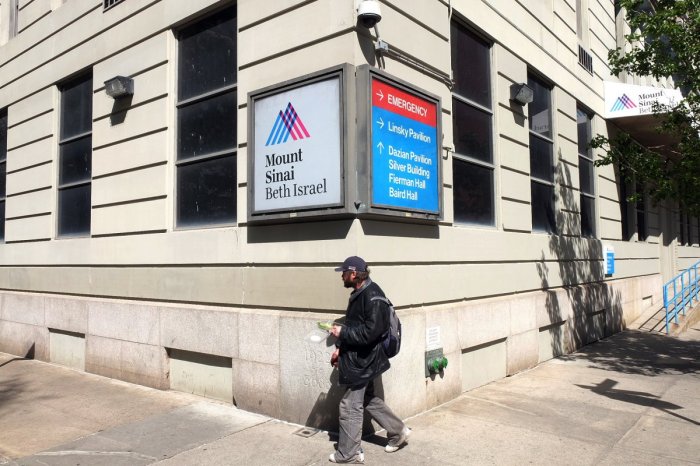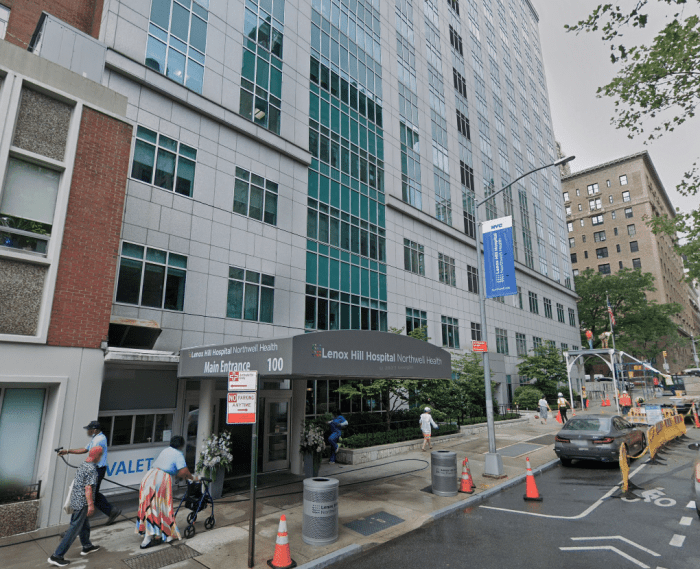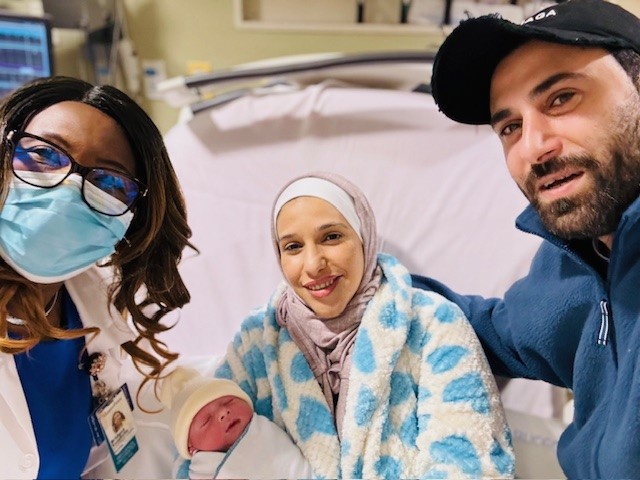A newly-constructed mental health center operated by Mount Sinai Health System was unveiled and opened in Lower Manhattan on Thursday, June 2 during a ribbon-cutting ceremony.
The Mount Sinai-Behavioral Health Center, located on 45 Rivington Street, is a $140 million facility, with the price tag believed to represent the largest private investment in mental health care in state history.
The Mount Sinai-Behavioral Health Center is meant to be a “one-stop shop” for mental health care, substance use treatment, and primary care — in the hopes of transforming behavioral health care in New York City.
The new center features inpatient care, intensive outpatient and crisis services, and general outpatient mental health and substance use disorder treatment services.
The center has one of the state’s first Intensive Crisis Residences for short-term therapeutic residences for people experiencing urgent and acute mental health crises that are not necessarily severe enough to require hospitalization. The Intensive Crisis Residences can also serve as the next step for people transitioning from an acute hospital stay to reintegrate back into the community, according to Mount Sinai Health System.
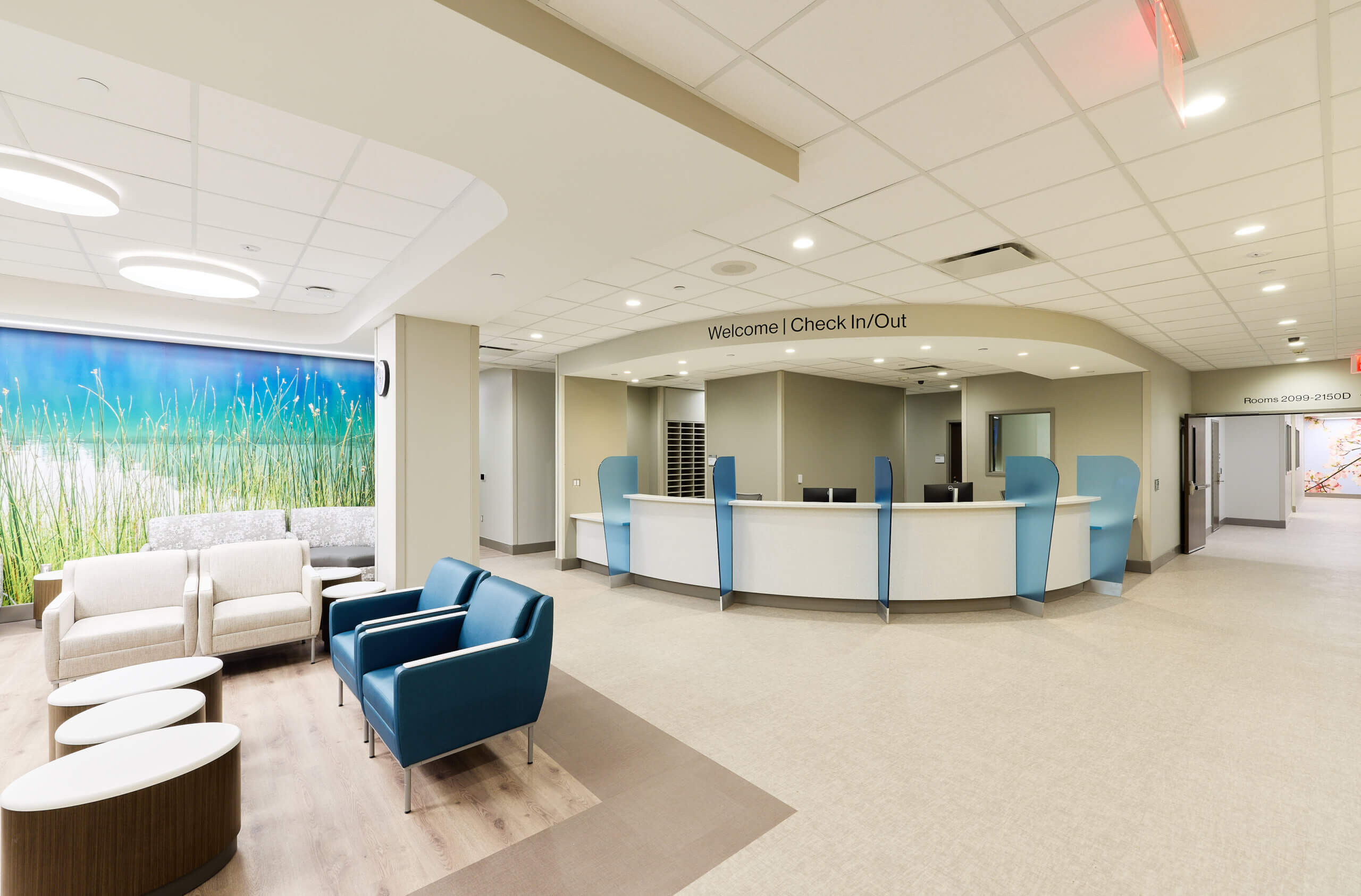
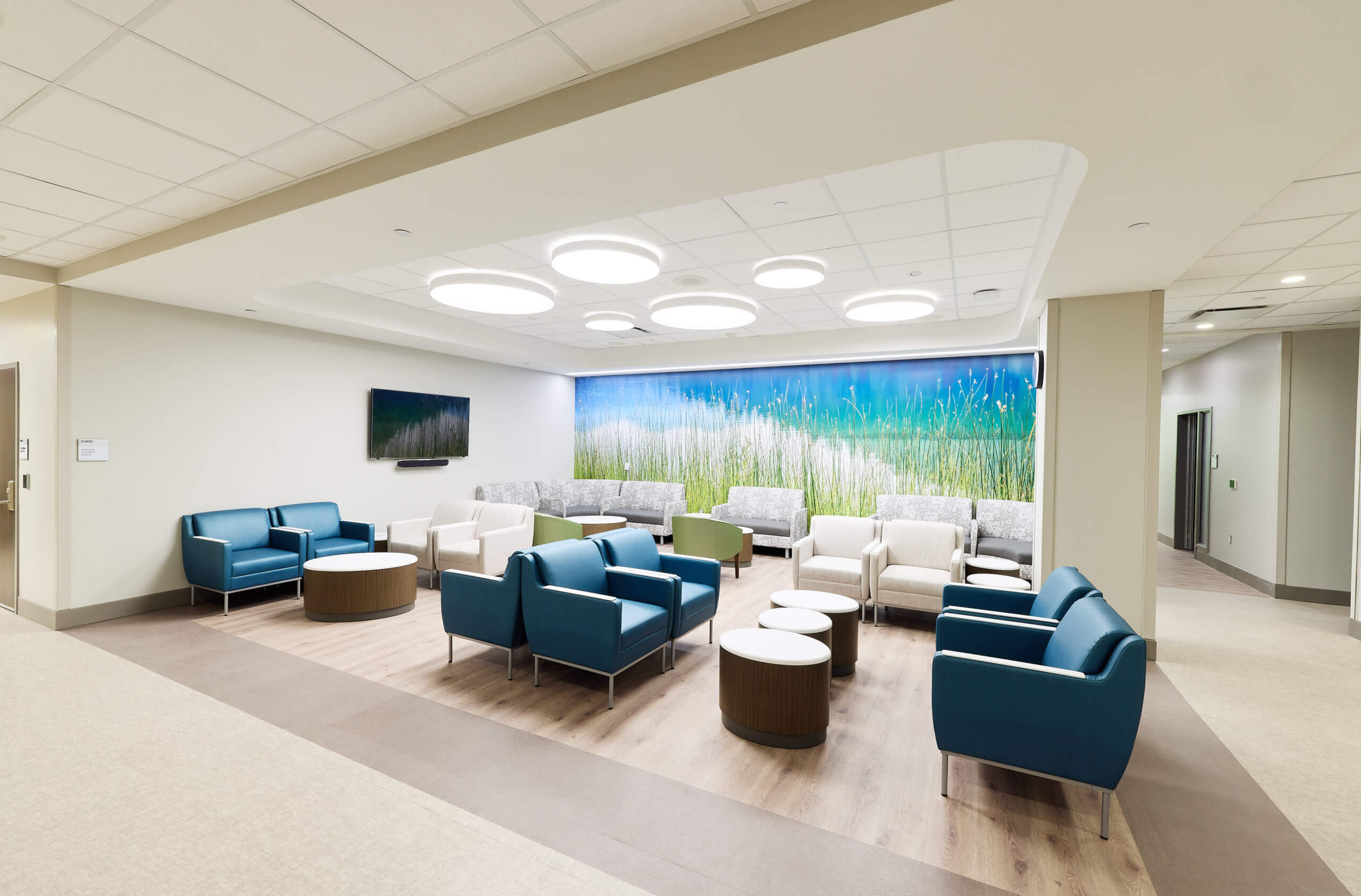
Mount Sinai Health System, one of New York City’s largest academic medical systems with 43,000 employees and eight hospitals, touted the new center’s tall ceilings, abundant natural light, artwork, and outdoor courtyard — all designed to create a sense of peace and calm. The center’s welcome rooms, recovery areas, and therapy spaces should preserve dignity and wellness for the center’s patients, as well.
The center is part of the larger Mount Sinai Health System Behavioral Health clinical service line. Patients will be able to access behavioral health services across the entire Mount Sinai Health System, including the Addiction Institute at Mount Sinai clinical programs at other locations, and programs such as the CARES program for teenagers and young adults and the Center for Intensive Treatment of Personality Disorders.
All of the behavioral health center’s patients will have the opportunity to participate in research and clinical trials that Mount Sinai states will contribute to the “advancement of psychiatric knowledge and care.”
René S. Kahn, chair of psychiatry for the Mount Sinai Health System, said in a statement that the new center will provide more space and resources for Mount Sinai’s Department of Psychiatry. Kahn pointed to more opportunities to launch new psychiatric programs and approaches for treatment.
The ribbon-cutting ceremony was attended by Mount Sinai leaders Kenneth Davis, CEO of the Mount Sinai Health System, Grant Mitchell, chair of psychiatry at Mount Sinai Beth Israel, Dennis Charney, president for academic affairs of the Mount Sinai Health System, and Ann Sullivan, commissioner of the New York State Office of Mental Health.
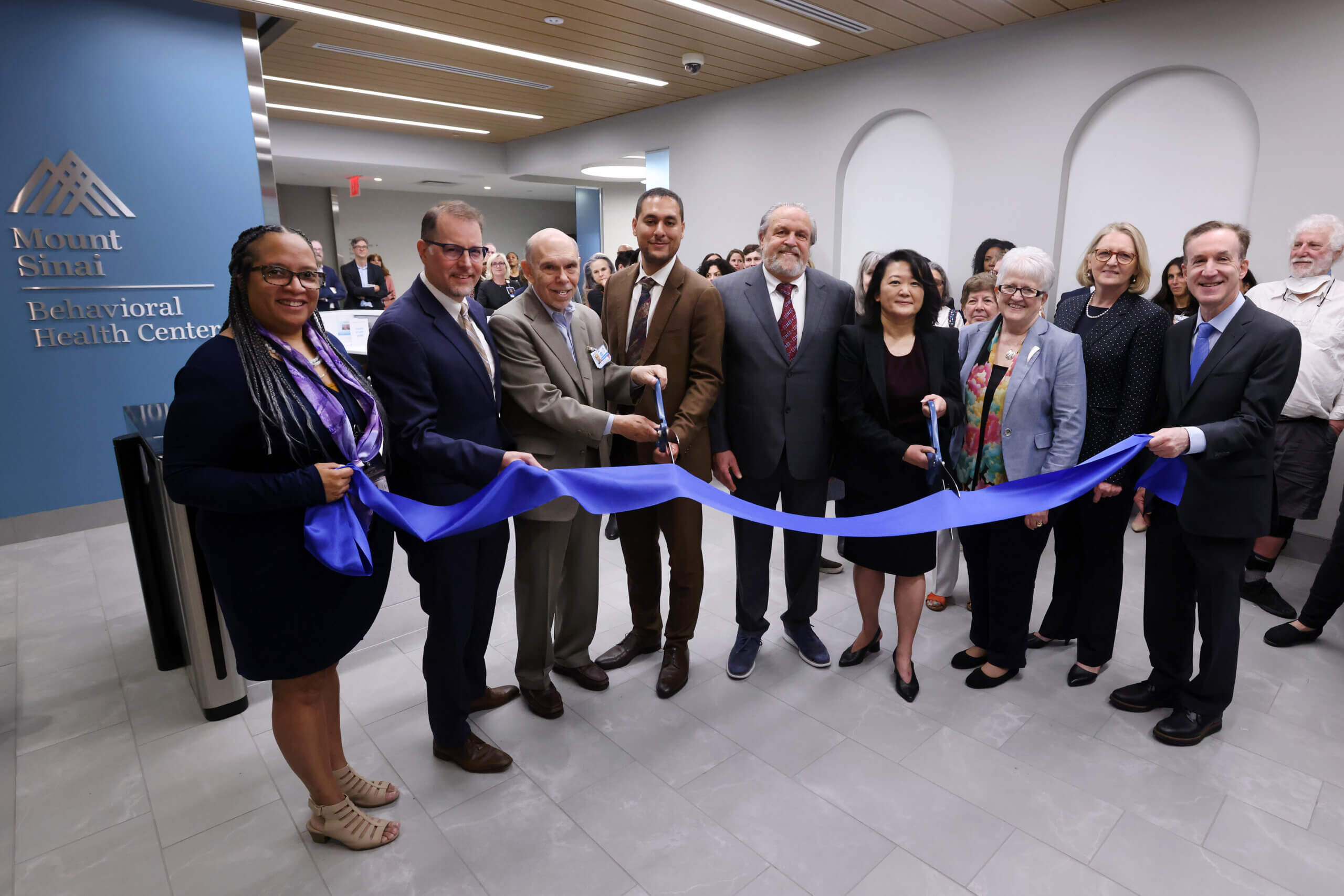
The new center is part of Mount Sinai’s efforts to transform care in downtown Manhattan. The system has invested more than $1 billion to build a network of 20 outpatient and ambulatory care facilities all below 34th Street. Mitchell touched upon the importance of bringing behavioral health services to New Yorkers in an area that has seen a loss of medical care facilities in the last two decades.
“This new facility will address some of the critical gaps in behavioral health services that New Yorkers downtown currently face, giving them access to the care they need when and where they need it,” Mitchell said.
Manhattan Borough President Mark Levine and New York City Council Members Carolina Rivera and Christopher Marte were also present at the ceremony to celebrate the center’s opening.
“One of the biggest challenges that New York has right now is the unmet needs of our fellow New Yorkers who are struggling with mental illness,” Levine said at the ceremony. “Your investment of $140 million here is huge. You’re showing the rest of the city that we can do behavioral health right.”
Rivera praised Mount Sinai for setting a new standard in New York City for mental health care.
“I cannot tell you how often it is that people who are living with mental health issues are criminalized and end up in Rikers (Island) instead of being in a place where they receive programs and services and feel welcomed and part of the community,” Rivera said at the ceremony. “I know that you can’t serve every single person living with mental health issues. But I know that you will serve as many people as you can with dignity and respect.”
Mitchell called the four-year collaboration and construction of the Mount Sinai-Behavioral Health Center a “labor of love” and said the new center represents the opportunity to advance the medical field’s understanding of mental illness through research and training of future generations of healthcare professionals and leaders.
“Patients and families told us they wanted a continuum of care alternatives to inpatient treatment,” Mitchell said at the ceremony. “They share the challenges of accessing and navigating the system due to siloed services and the lack of integration. We listened and today we celebrate the reimagining of behavioral health care in New York City.”
Read more: Nordstrom NYC Prepares for Festive Holiday Season



